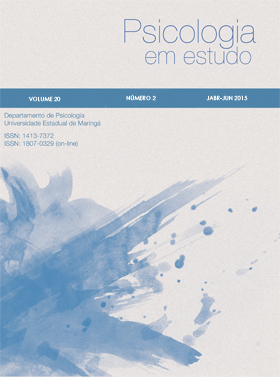Aids, Infância(s) e Políticas Públicas: A Construção de Sujeitos Através do Discurso
Resumo
No panorama nacional da Aids, há uma preocupação com sua incidência em mulheres, apontando a transmissão vertical do HIV como uma prioridade nas políticas de prevenção. Contudo, quando se trata de políticas públicas voltadas especificamente para a infância que vive com HIV/Aids, há uma invisibilidade e um silenciamento, que vão designar diferentes posições de sujeito no âmbito da Aids. Neste sentido, o presente estudo teve como objetivo investigar os discursos que constituem as políticas públicas em saúde no Brasil voltadas à questão da Aids na infância e seus dispositivos de saber/poder que constroem posições de sujeito. Foi realizada uma pesquisa documental, que contou com a análise de 19 documentos oficiais selecionados de acordo com os núcleos de sentido relacionados ao objetivo da pesquisa (criança/infância; transmissão vertical e gravidez/gestação) e encontrados em uma base de dados do Ministério da Saúde. Observou-se a existência de posições diferenciadas de infância no âmbito da Aids, sendo, uma infância que é, ao mesmo tempo, enunciada como alvo de políticas públicas, antes mesmo de se conhecer seu status sorológico e, por outro lado, uma infância que vive com HIV/Aids, que deixa de ser alvo de políticas públicas. Tais posições de invisibilidade da criança produzem efeitos no âmbito das práticas sociais em saúde pública voltadas a esse segmento populacional, sendo válido, portanto, estudos que se destinem à análise de tais políticas, considerando que os discursos que enunciam as infâncias e a aids também fabricam as políticas públicas na área da saúde e reverberam práticas e saberes.
Downloads
As opiniões emitidas, são de exclusiva responsabilidade do(s) autor(es). Ao submeterem o manuscrito ao Conselho Editorial de Psicologia em Estudo, o(s) autor(es) assume(m) a responsabilidade de não ter previamente publicado ou submetido o mesmo manuscrito por outro periódico. Em caso de autoria múltipla, o manuscrito deve vir acompanhado de autorização assinada por todos os autores. Artigos aceitos para publicação passam a ser propriedade da revista, podendo ser remixados e reaproveitados conforme prevê a licença Creative Commons CC-BY.
The opinions expressed are the sole responsibility of the author (s). When submitting the manuscript to the Editorial Board of Study Psychology, the author (s) assumes responsibility for not having previously published or submitted the same manuscript by another journal. In case of multiple authorship, the manuscript must be accompanied by an authorization signed by all authors. Articles accepted for publication become the property of the journal, and can be remixed and reused as provided for in theby a license Creative Commons CC-BY.
















